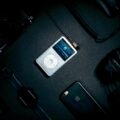While Bluetooth 5 is already out, many existing devices such as smartphones don’t support it yet. You may still need to understand the difference between Bluetooth 4.0 vs 4.1.
It may be hard to believe, but the Bluetooth technology has been around since 1994. When Bluetooth first caught on with the public, it was with wireless earphones for cellphones. Suddenly everyone had a small oblong headset attached to one ear.
As Bluetooth evolved, it became the de facto standard for anything that needed to be connected wirelessly to your smartphone, tablet, or even desktop computer.
What Bluetooth is Used For
Bluetooth wireless technology does more than connect you wirelessly to your smartphone via a remote headset. It also can power:
What is the Internet of Things (IoT)?
Bluetooth continues to evolve in part because of its potential application for the real future of the Internet: The Internet of Things (abbreviated IoT).
The Internet of Things is all about creating connections that can make life more convenient and efficient, whether it is for business or personal use.
For the home, this might be a refrigerator that can determine when it is low on milk and order more for you from the store for delivery.
For the office, it might be a device that can track inventory or help with managing the supply chain.
Because of the potential added demand of Internet of Things, Bluetooth technology has to become more powerful. Among its improvements over the years are:
How Bluetooth Has Improved Over the Years
Each new iteration of Bluetooth improves on these five areas:
1. Speed
Speed of data transfer is important, even for mundane tasks such as playing music through speakers. If you want to have the highest quality music streamed through Bluetooth, then the speed of data transfer must be high.
2. Reliability
Reliability includes the reliability of the connection while Bluetooth is operating. If it keeps disconnecting, then that will simply create more frustration.
3. Range
The original Bluetooth technologies had a very short range. You could only use your Bluetooth headset when you were very close to your cellphone. As Bluetooth evolves, the range becomes greater, and it is starting to rival Wi-Fi.
4. Power Consumption
Power consumption is very important. If your Bluetooth device is eating up electricity and needs to be recharged constantly, it isn’t of much use. Starting with Bluetooth 4, new “Low Energy” technologies have worked to make Bluetooth devices much more energy efficient.
5. Ease of Use
Bluetooth needs to be easy to use. Unfortunately, this doesn’t seem to be improving as much as other metrics. Bluetooth devices are still difficult to pair frequently.
One commenter, Jacob, wrote: “I don't care so much about all those improvments in the standards ... BT is still user unfriendly in terms of connecting/pairing/unsing ... sometimes a pain in the ass.
Why dont they improve that?”
Good question, Jacob.
What About Bluetooth 4.0 vs 4.1?
As we already mentioned, Bluetooth 4.0 already made huge leaps in regards to energy consumption. Bluetooth 4.1 also fixed the problem that Bluetooth 4.0 had in conflicting with 4G signals.
Bluetooth 4.1 also offers “smart connectivity” so that device manufacturers could determine how often the device needed to reconnect.
Data transfer was also significantly improved by taking out the smartphone as the “middleman.” The 4.1 Bluetooth device can act as both hub and end point so that data can move directly from one Bluetooth device to another.
Bluetooth 4.0 vs 4.1: What Can I Do to Upgrade?
Realistically, you can’t do much to upgrade your existing devices. You may have gotten an “over the air” update that would have already automatically updated your Bluetooth 4.0 device to 4.1. However, this would be at the discretion of the manufacturer.
If you have a really old device, such as an original iPad, the actual hardware may not support the Bluetooth version needed by a modern device such as a FitBit wrist fitness tracker. You can sometimes by external dongles for older devices that can add the functionality of a more recent version of Bluetooth.
Bluetooth 5 and Beyond
New iPhones and other devices are now supporting Bluetooth 5, and soon Bluetooth 4.0 and 4.1 will be old technologies. As Bluetooth evolves, look for more range and better data transfer. We can only hope that they will fix that pesky, perpetual problem with faulty Bluetooth pairing once and for all.













Leave a Reply